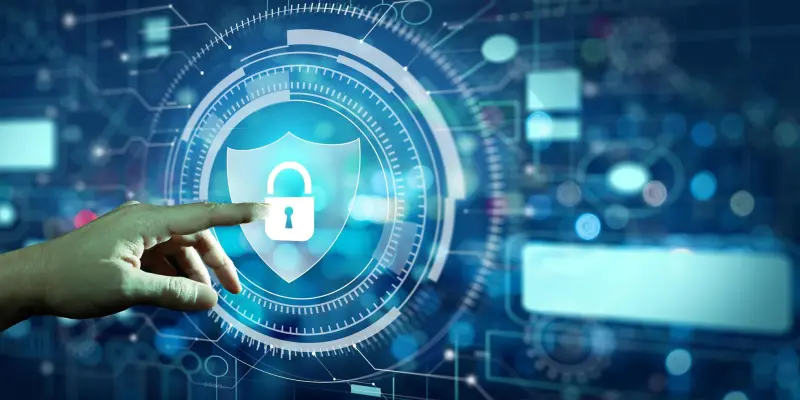The Trump Administration has taken a firm stance on cyber-attacks, particularly focusing on the vulnerabilities of U.S. critical infrastructure. This approach signals a stark shift toward more assertive measures against nations like China, which have been accused of hacking vital sectors. During a keynote at RSA 2025, Alexei Bulazel, who serves as the Senior Director for Cyber at the National Security Council, highlighted the potential risks of inaction against state-sponsored cyber threats. He noted that failing to respond adequately may inadvertently embolden further malicious activities. Bulazel’s remarks underscore a broader strategy aimed at not just deterring but actively degrading the capabilities of adversaries after cyber intrusions. These developments bring to light a pressing debate over how to safeguard national interests in an increasingly digital world, stressing the importance of addressing vulnerabilities before they can be exploited.
The Nature of Cyber Threats
Unrelenting Targeting of Critical Infrastructure
Cyber threats targeting critical infrastructure have risen sharply, with groups like Volt Typhoon and Salt Typhoon making headlines for their audacious and potent cyber assaults. These entities zero in on essential sectors, including energy, water, and telecommunications, raising alarms over the possible repercussions of such incursions. These breaches are seen not merely as attempts to steal information but as precursors to more damaging physical attacks. Their actions are likened to placing explosives, signifying serious and immediate dangers. This evolving threat landscape necessitates a shift from attributing blame to victims and toward more assertive strategies aimed at neutralizing adversaries’ capabilities. Such proactive measures can potentially prevent more severe consequences. Government leaders and cybersecurity experts alike are increasingly calling for concerted efforts to bolster the defenses of entities considered part of America’s critical infrastructure, recognizing the gravity associated with these cyber offensives.
Preparing for Future Deterrence
Developing a robust framework for combating cyber threats is an essential requirement in today’s digital age. Alexei Bulazel emphasizes the need for an all-encompassing strategy that goes beyond merely addressing breaches. This includes initiatives aimed at degrading adversaries’ technological and operational capabilities to delay or deter future cyber attempts. By focusing on rendering potential intruders incapable of causing chaos or accessing sensitive systems, the United States can establish a more secure environment. Achieving this requires an integrated approach involving both public and private sectors working in tandem. It also involves considerable investment in research and development to preemptively close security gaps. A significant component of such preparedness involves reforming cyber agencies like CISA, ensuring they concentrate on core missions rather than diversifying into unrelated areas. These combined efforts aim to harden defenses and lessen the effectiveness of cyber threats.
Collaborative Strategies for Cybersecurity
Government and Private Sector Alliances
In the fight against intricate and constantly evolving cyber threats, a robust partnership between the government and the private sector is becoming crucial. The Trump Administration recognizes the indispensability of collaborative efforts to fortify the cybersecurity infrastructure of America. Businesses must engage actively with governmental bodies to identify vulnerabilities before they are exploited. Patching these vulnerabilities requires a concerted, ongoing process that calls for cooperation across various disciplines and industries. By merging resources and knowledge, these collaborations can lead to the development of innovative solutions that keep pace with, or ideally stay ahead of, cyber adversaries. Effective communication channels and information-sharing mechanisms can further enhance the ability of both sectors to respond swiftly and robustly to any breach attempts, thereby reinforcing a united front against cyber assailants.
Refocusing Cybersecurity Priorities
There is an urgent need to realign government agencies’ objectives to address the rampant cyber threats effectively. A primary concern raised by Alexei Bulazel is the recent shift of the Cybersecurity and Infrastructure Security Agency (CISA) toward disinformation campaigns, a direction that detracts from its original core mission. Recognizing and subsequently addressing this drift is vital to ensuring that resources are efficiently allocated toward defending against real, palpable cyber threats. Calls for reform suggest a restructuring of agency priorities to ensure that they are optimally focused. By concentrating efforts where they are most needed, the U.S. can build a more resilient cybersecurity framework. This approach not only requires internal reform but also demands aligning new strategies with international standards, ensuring that all measures are in place to protect critical infrastructure from foreign actors.
Path Forward in Cyber Defense
The surge in cyber threats targeting vital infrastructure has become a pressing concern, particularly with notorious groups like Volt Typhoon and Salt Typhoon capturing attention due to their bold and effective cyber attacks. They focus on essential sectors such as energy, water systems, and telecommunications, sparking anxiety over potential catastrophic outcomes. These intrusions are understood not merely as data theft attempts but as indicators of possible destructive physical assaults, akin to setting explosives. This escalating threat environment requires a fundamental shift from blaming victims to adopting decisive strategies that aim to dismantle adversaries’ capabilities. Through such proactive measures, the chance of mitigating severe impacts can be enhanced. There is a growing consensus among government officials and cybersecurity specialists on the importance of collective efforts to fortify defenses around America’s critical infrastructure, as the seriousness of these cyber threats becomes increasingly apparent.

